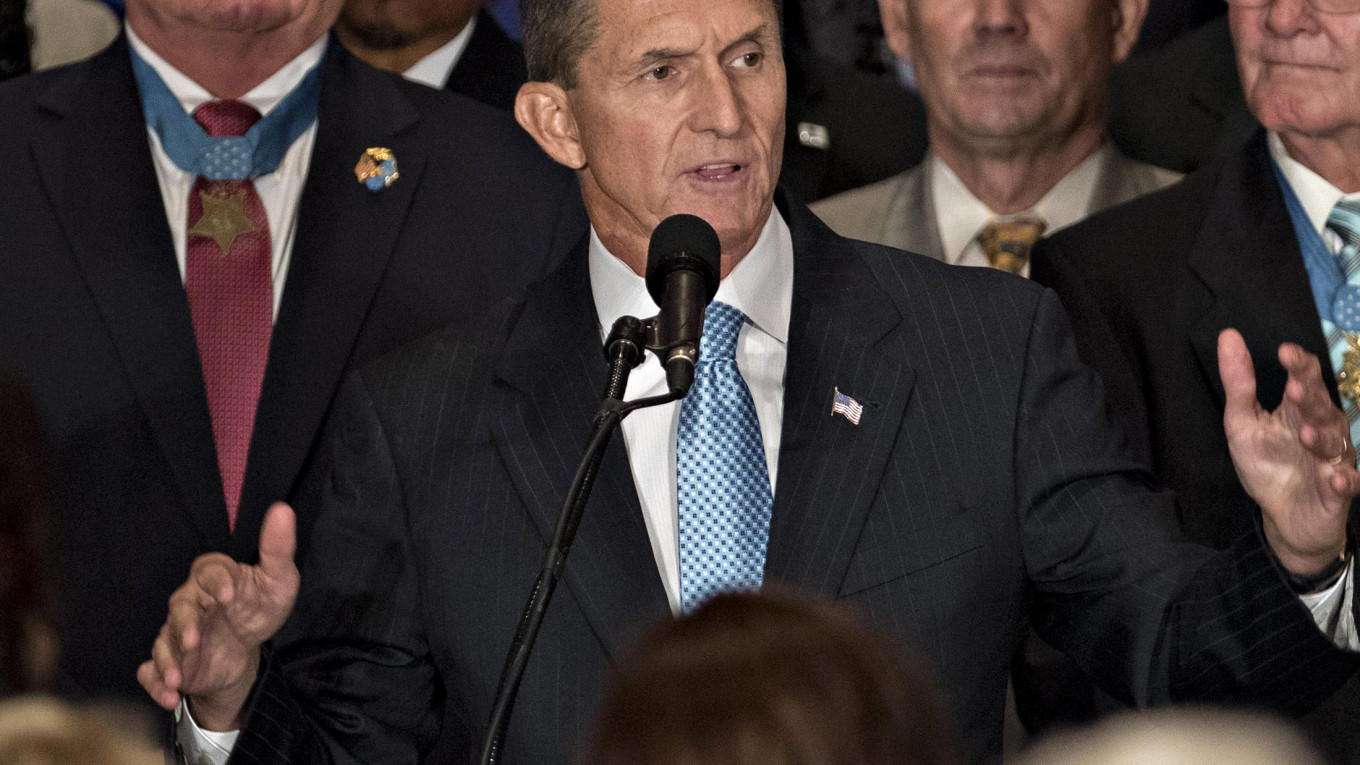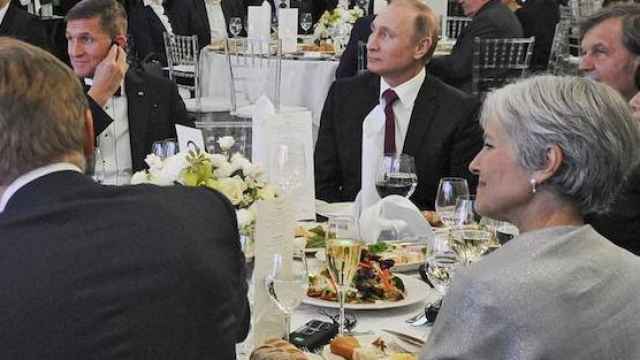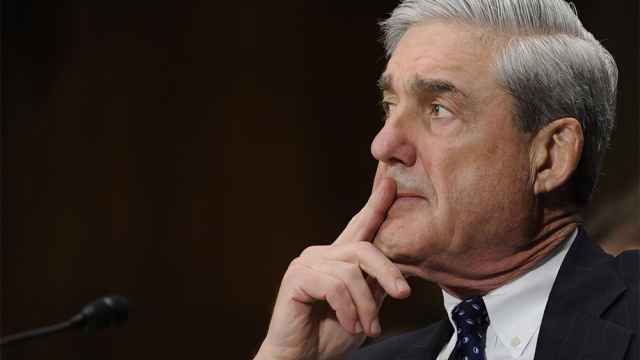(Bloomberg) — Former national security adviser Michael Flynn pleaded guilty to lying to federal agents and is providing cooperation that promises to take Special Counsel Robert Mueller deep into Donald Trump’s administration.
Speaking in court as part of his plea agreement, Flynn, 58, said Trump’s team asked him to make contact with Russians and that he told incoming administration what he was doing. Flynn called a senior official from the transition team for guidance before talking to the Russia’s ambassador to the U.S., and then reported back to the transition team after the call.
The plea is a major step for Mueller’s quickly advancing investigation. Mueller has already charged Trump’s former campaign chairman Paul Manafort and his deputy over their earlier business activities, as well as a guilty plea from George Papadopoulos, a campaign adviser who pursued Russia’s help during last year’s election. Papadopoulos is cooperating with the probe.
Flynn agreed to cooperate as part of a deal in which he pleaded guilty in a Washington, D.C., court Friday to a single charge -- that Flynn lied to Federal Bureau of Investigation agents about two conversations with the ambassador, Sergey Kislyak. He faces a maximum of five years in prison and a $250,000 fine.
Stocks and the dollar plunged on the news, while Treasuries, often viewed as the safest of investments, rallied.
Flynn told the agents that he didn’t ask Kislyak on Dec. 29 to moderate Russia’s response to U.S. sanctions imposed by the Obama administration that day -- a statement he now admits is a lie. He also lied by claiming not to recall the ambassador saying Russia had decided to do just that.
In a previous conversation with the Russian, he discussed a U.N. matter, asking him to delay or defeat a security council vote. He also lied to the FBI about that.
“This shows a Trump associate negotiating with the Russians against U.S. policy and interests before Donald Trump took office and after it was announced that Russia had interfered in our election,” Senator Dianne Feinstein, a Democrat from California, said in a statement. “It’s critical that we determine whether Flynn spoke with the Russians on his own initiative and who knew and approved of his actions.”
In cooperating with Mueller’s inquiry, Flynn is seeking leniency for himself and possibly his son, who worked with him in his private business. The charge doesn’t delve into Flynn’s work on behalf of Turkey, which is also under investigation, or his failure to promptly disclose such work to U.S. authorities.
Read more: Your Guide to Understanding the Trump-Russia Saga
Flynn was forced to resign less than a month into Trump’s term. The White House was warned by the Justice Department that Flynn could be subjected to blackmail because his dealings with Russians hadn’t been disclosed.
After he left the administration, Flynn filed an updated foreign registration form showing that he hadn’t disclosed multiple contacts and payments from foreign entities while serving as an campaign adviser to Trump starting in February 2016.
At the time, Flynn, a retired Army general, ran a consulting business called Flynn Intel Group. In one case, Flynn’s company received $530,000 from Inovo BV, a Dutch company working on behalf of Turkey’s government, to lobby the U.S. for extradition of a dissident cleric who has opposed President Recep Erdogan of Turkey.
He’s also disclosed payments from RT, described in an unclassified U.S. intelligence report as “the Kremlin’s principal international propaganda outlet,” and Kaspersky Government Security, a cybersecurity business that U.S. authorities say works closely with Russia’s main intelligence agency, the FSB.
The charge Friday stems from various conversations between Flynn and Kislyak, including one in Trump Tower with Jared Kushner, Trump’s son-in-law and senior adviser. FBI agents subsequently asked Flynn whether he had talked with Kislyak about sanctions imposed by President Barack Obama in retaliation for Russia’s election meddling.
Flynn, who as a private citizen during those conversations was barred from negotiating with foreign powers, told the agents that sanctions hadn’t come up. The Justice Department informed the White House that Flynn’s denial contradicted the contents of phone calls intercepted by intelligence agencies, potentially exposing him to blackmail by Moscow, the Washington Post has reported, citing unnamed current and former U.S. officials.
Flynn resigned on Feb. 13 after only 24 days on the job. In his resignation letter he apologized to the president and vice president for giving them “incomplete information” about his interactions with the Russian ambassador.
Flynn has since drawn criticism for failing to disclose his consulting work for foreign governments while he was the top defense adviser to Trump’s presidential campaign and serving in the transition and cabinet. Top House Democrats say that Flynn failed to disclose a 2015 Middle East business trip tied to a plan to build nuclear plants in the region using money from Saudi and Russian investors. The Democrats called the omission a crime.
Flynn rose to the top of the military’s intelligence apparatus during a career notable for both his battlefield successes and his breaches of the Pentagon’s chain-of-command.
After he was fired by Obama in 2014 for bucking his military superiors, Flynn started a private lobbying and consulting practice that did business in foreign countries including Russia and Turkey. Flynn didn’t disclose those contacts and payments, as required, when applying for his security clearance to work in the Trump White House, even though several of his clients worked on behalf of the Russian and Turkish governments.
Flynn’s son, Michael Flynn Jr., also worked for the consulting firm and is under investigation by the special counsel. The son gained attention during the 2016 president election for promoting conspiracy theories about Hillary Clinton on social media.
The FBI’s investigation of Flynn gave rise to the appointment of the special counsel overseeing the wider Russia probe. Even after Flynn’s firing, Trump defended him publicly, calling him a “very good person” who had done nothing wrong. In private, Trump asked his FBI director, James Comey, to end the examination of Flynn, Comey has testified. After Comey refused, he was fired, he said. Soon after, Mueller was appointed as special counsel.
The charge against Flynn casts a renewed spotlight on Attorney General Jeff Sessions. Sessions recused himself from any investigation into Russia’s attempts to influence the 2016 election after Democratic lawmakers accused him of lying to Congress about his own conversations with Russian officials.
Flynn’s 33-year military career stretched from the 1983 Granada invasion, where he was a platoon leader, to stints as director of intelligence for the U.S. Central Command, the Joint Chiefs of Staff and the International Security Assistance Force. He retired in 2014 after Obama fired him as director of the Defense Intelligence Agency.
A Message from The Moscow Times:
Dear readers,
We are facing unprecedented challenges. Russia's Prosecutor General's Office has designated The Moscow Times as an "undesirable" organization, criminalizing our work and putting our staff at risk of prosecution. This follows our earlier unjust labeling as a "foreign agent."
These actions are direct attempts to silence independent journalism in Russia. The authorities claim our work "discredits the decisions of the Russian leadership." We see things differently: we strive to provide accurate, unbiased reporting on Russia.
We, the journalists of The Moscow Times, refuse to be silenced. But to continue our work, we need your help.
Your support, no matter how small, makes a world of difference. If you can, please support us monthly starting from just $2. It's quick to set up, and every contribution makes a significant impact.
By supporting The Moscow Times, you're defending open, independent journalism in the face of repression. Thank you for standing with us.
Remind me later.






